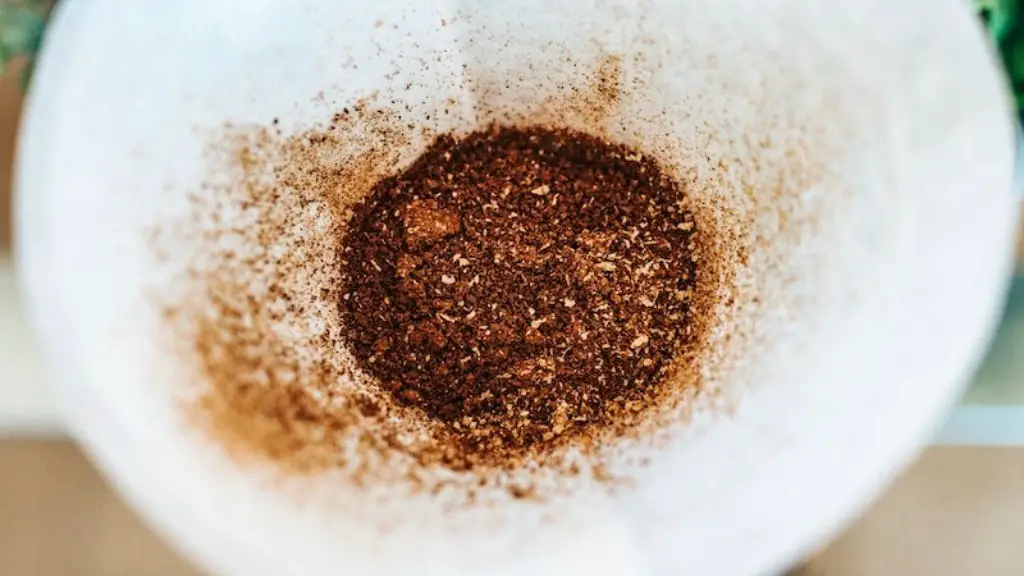What Makes Coffee Jittery?
If you love coffee, but wish to lessen the jittery feelings that come with drinking it, you’re in luck. There are several key factors that have been shown to reduce caffeine’s potential to cause jitteriness. Here, we’ll go into what makes coffee so stimulating, and provide some tips on how to minimize the jitters.
According to nutrition expert Robert Deng, Ph.D., the amount of caffeine in a cup of coffee is the main factor related to its stimulating effect. Coffee can contain anywhere between 95 and 165 milligrams of caffeine per 5- or 8-ounce cup, depending on the type of coffee bean and brewing method used. For comparison, the average cup of tea contains just 47 milligrams of caffeine. Excess caffeine can cause jitteriness, anxiety, dizziness, and other unpleasant feelings, so moderation is key.
Another factor that may contribute to the jittery feeling of drinking coffee is its acidity. Coffee can have medium- to high-acidic levels, which research shows can disrupt the balance of beneficial bacteria in your gut, triggering a wide-range of health problems, including jitteriness or worse. The U.S. National Institutes of Health suggest slowing down while drinking coffee, which can be helpful in moderating the acidity.
How to minimize the Jitters
The amount of caffeine in coffee isn’t the only ingredient that can contribute to its stimulating effects. Scientists suggest that certain compounds and antioxidants in coffee, like chlorogenic acid and N-alkanoly-5-hydroxytryptamides, can increase coffee’s stimulatory qualities and make it harder to digest. To limit these effects, consider using low-acid coffee and a less caffeinated brewing method, like a French press.
Another way to drink coffee without the jitters is to opt for a plant-based coffee alternative, like chicory or dandelion coffee. These alternatives have a naturally low caffeine level, along with beneficial prebiotic fiber, minerals and anti-inflammatory properties. What’s more, chicory and dandelion coffee can be brewed in the same way as traditional coffee, making them a helpful option if you’re looking to reduce caffeine intake.
Finally, focusing on proper digestion is another way to reduce bad coffee side effects. Nutritionists recommend eating food alongside your coffee, both to protect your stomach’s acidity level and to provide your body with the energy it needs to process the caffeine. Eating something that includes healthy fats can help balance the acidity of the caffeine too.
Lower-Caffeine Options
If you’re trying to reduce your intake of caffeine, but you still want to enjoy the flavor and aroma of coffee, there are a few easy alternatives available. Decaf coffee, for instance, is brewed using a method that removes as much caffeine as possible without compromising the flavor of the coffee. This can reduce caffeine content to as little as 5 milligrams per cup.
Alternatively, try cold-brewed coffee, made with a combination of low-acid beans and cold or room-temperature water. This method uses time rather than heat to extract flavor and caffeine, resulting in a smooth-tasting, less-bitter, low-caffeine blend.
Finally, if you’d like a warm, caffeinated beverage, consider switching to tea. One study revealed that tea’s effective antimicrobial and antioxidant action can provide neuroprotective effects against caffeine-induced jitteriness and neurodegenerative diseases.
Other Healthy Habits
It’s best to avoid drinking coffee in excess, and too late in the day, as the caffeine can make it difficult to fall asleep. It may also be necessary to limit your consumption of energy drinks and sodas, as these products are often loaded with caffeine.
If you’re prone to jitteriness, try not to drink more than 3-4 cups of coffee a day. Additionally, take regular breaks throughout the day to give your body a chance to rest and regain balance. Finally, look into yoga and meditation as methods that can help reduce stress and tension.
Making Lifestyle Changes
Making just a few small lifestyle changes can make a huge difference in cutting caffeine-induced jitters. Taking your time when drinking coffee, eating regularly, cutting back on excess caffeine and making sure to get plenty of rest can help balance your system and prevent the jitters.
It’s also important to consider the health benefits of coffee and how it might improve your concentration and focus. A handful of studies show that coffee can increase alertness and improve brain function. So by limiting intake and adhering to certain lifestyle habits, it’s possible to enjoy coffee without feeling overly stimulated.
Introducing Healthy Supplements
Incorporating healthy supplements into your daily routine may also be beneficial for cutting down on coffee-related jitters. Omega-3 supplements, for instance, can help reduce anxiety and soothe the body and mind. Additionally, consider adding in a vitamin B complex, as B vitamins are essential for metabolizing caffeine.
Herbs like ashwagandha, valerian root, and skullcap may also be helpful in limiting the jitters and restoring balance within your system. These can be found in either pill or liquid form, and are known for their calming and restorative properties.
Finally, magnesium is a mineral that may help regulate coffee’s effects on the body and reduce the jitters. Magnesium supplements come in pill, powder, or liquid form, and are helpful in calming the nervous system and restoring balance.
Making Smart Coffee Choices
Start by selecting coffee beans with a lower caffeine content, like Colombian Supremo and Indonesian beans. When brewing, opt for a shorter extraction time and light to medium roasts. The brew method also makes a difference in reducing the bitterness and acidity of the coffee, and slow-brew methods can be helpful in reducing caffeine’s stimulating effects. Finally, consider taking a break from coffee every now and then, and switch to a less caffeine-intensive beverage.
Rather than quitting coffee altogether, taking control of how much you drink and avoiding excess intake, is the best way to reduce jitters and caffeine-related side effects. Everyone’s caffeine needs and thresholds are unique, so it’s important to experiment and find the healthiest options for you.
Switch to Natural Alternatives
Another way to reduce jitters is to switch to a natural caffeine source, like guarana. Guarana is an Amazonian plant that delivers an energy boost without any of the caffeine-induced side effects. What’s more, guarana is naturally harvested, which means it contains non-GMO ingredients and is easy to find in many health food stores.
Coconut water is another natural relief from jitters. Not only does it contain electrolytes and vitamins, but it can also provide a natural boost of energy. Plus, it’s low in sugar, so you don’t have to worry about any negative side effects.
Finally, nutritious green smoothies can be helpful in reducing jittery effects. This can be a great way to are get in essential vitamins and minerals, without sacrificing taste and pleasure.
Nutrition and Exercise
When trying to reduce jitters from caffeine, it’s important to also focus on your diet and exercise regimen. Eating a balanced diet loaded with whole grains, fresh fruits and vegetables, healthy fats, and lean protein can help the body and mind function better. Add in regular physical activity, like walking, running, yoga, and Pilates and you’ll soon be able to reap the full benefits of a healthy lifestyle.
Finally, consider speaking to your doctor about your coffee intake. They will be able to advise you on the best strategies for reducing caffeine-related jitters and symptoms, depending on your individual health status.





